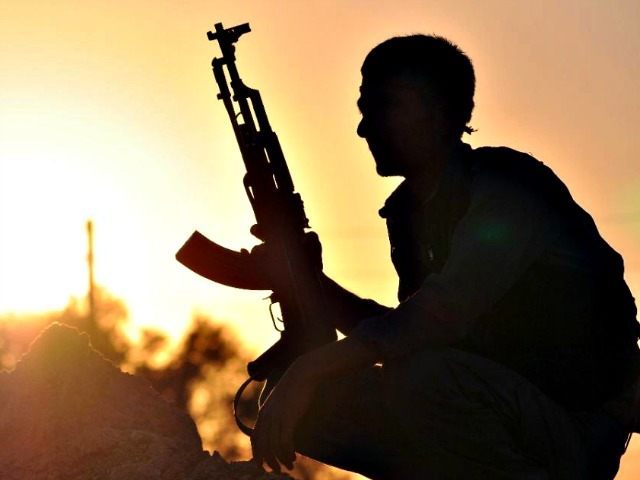At least 50 U.S. soldiers arrived in Kobane, Syria, on Thursday to train Kurdish People’s Protection Unit soldiers against the Islamic State (ISIS/ISIL).
Activist Mustapha Abdi told AFP the soldiers “had arrived ‘in recent hours,’ in what is the first official deployment of US ground troops in Syria.” The Kurdish People’s Protection Units (YPG) confirmed the troops will train and “plan offensives” in Jarablus and Raqqa, which is the de facto capital of the terrorist group’s caliphate.
From the AFP:
Rami Abdel Rahman, the director of the Syrian Observatory for Human Rights, a British-based monitor, said “more than 50 American instructors have arrived in northern and northeastern Syria”.
He said they had arrived in two groups over the past two days, coming from Turkey and from the autonomous Kurdish region of neighbouring Iraq.
He said about 30 were in Kobane itself, with the rest in Hasakeh province in eastern Syria.
“We have said before that we will be putting a small number of troops on the ground in Syria to coordinate with our partners there in a non-combat role. We will not be providing the specifics of their whereabouts or travel plans beyond that,” stated the U.S. Central Command.
In October, President Barack Obama announced the U.S. planned to deploy 50 troops to Syria, mainly to “isolate” Raqqa.
Kobane is important to ISIS since it allows them an easy route to transport jihadists. But the city is also valued by the Kurds.
“Kobane symbolises the Kurdish resistance, not only in Syria but in other parts of the Middle East,” explained Sirwan Kajjo, a Syrian-Kurdish analyst. “Its loss would translate into a defeat for the entire Kurdish nation. The city has gained strategic importance now, partly because it is the first Syrian town to stand against ISIL for such a long time. Other Syrian towns and cities fell into ISIL hands without any resistance.”
Armenians, fleeing persecution from the Ottoman Empire, populated the city in 1915. The Kurds from Anatolia followed on their footsteps. The end of the Ottoman Empire split the city between Turkey and Syria in 1921.
“The area of Suruc province is also called ‘the Armenian cemetery’ because of the thousands of Armenians who died there during the deportations,” said Cengiz Aktar, a Turkish political analyst. “It was a terrible place when the Armenians arrived back then, and the area has a tragic history. It is being repeated now.”
But others believe the devotion to Kobane has nothing to do with history. Mostafa Minawai, director of the Ottoman and Turkish Studies Initiative at Cornell University, claimed the city “lies at the heart of a Kurdish dream” and “more connected with future ambitions.”

COMMENTS
Please let us know if you're having issues with commenting.